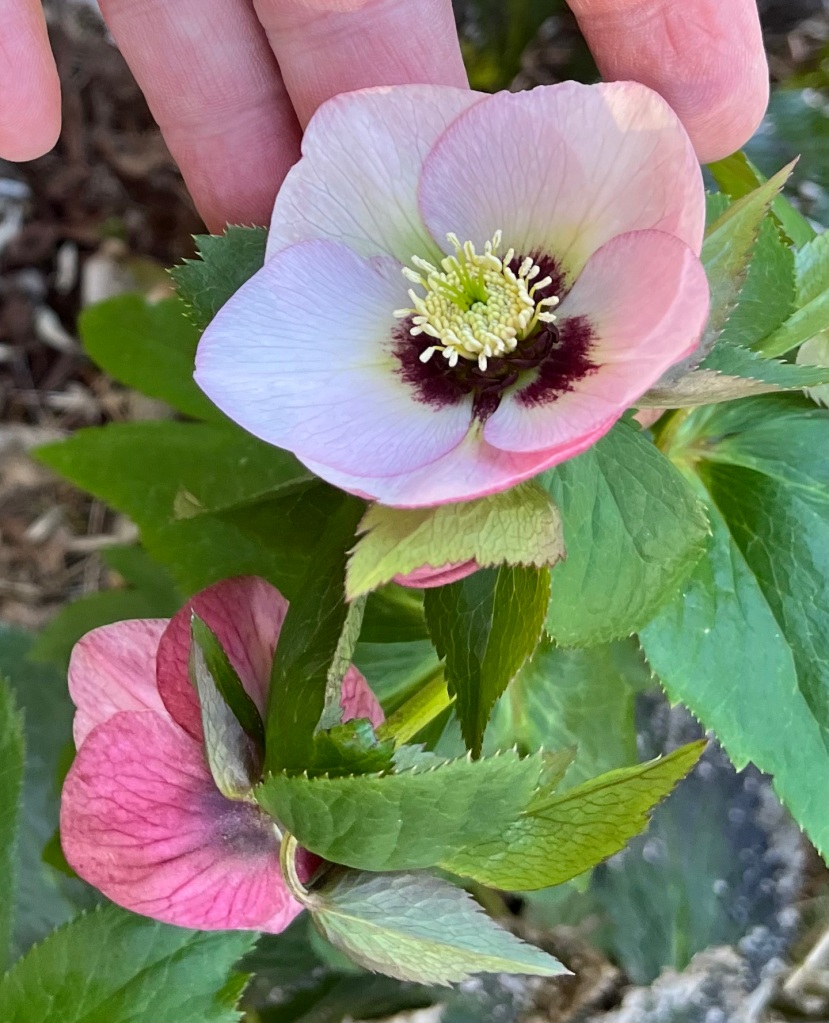Daffodils are blooming.
Tulips are next.
The rhythm of life is always visible.
I love life.
I love my husband.
I surely love God.
Life is messy by nature for sure, which is what makes it “unruly” (to quote this week’s collect). It is one thing to believe in love and another thing entirely to keep love uppermost as you go through the day dealing with dropping your keys, stubbing your toe, forgetting to pick up tomatoes on the way home, dealing with traffic, and on and on and on. We ask to be granted “grace,” which is love unbounded and freely given, because if we can achieve a state of grace then our hearts will be fixed on the place where love prevails.
God’s law is love. God speaks through the prophet Jeremiah [32:31-34] that love has been written on our hearts, in other words, God has made it a part of our created nature. An inscription for eternity. So we will know that when we love we are naturally the people of God.
The Psalmist [51:1-13] sings a prayer for mercy according to God’s “loving kindness” and “great compassion.” Cleanse us from disconnection by washing away unruliness; create a clean heart that will make my spirit love until joy sustains me.
The epistle to the Hebrews [5:5-10] connects Christ to the Old Testament stories of creation by reminding us that God has created Christ a “priest forever.” A priest is one who accepts responsibility for mediating God and humanity. One accepts the responsibility both from God and from one’s peers. The job is richly rewarding, on the one hand, and constantly challenging on the other. Although on the face of it there are lots of potlucks and plumbing repairs and learning to fire up the oil burner, mostly, the job is to lead, spiritually.
That’s it, to lead, spiritually. Christ “became the source of eternal salvation for all who obey him,” linking through eternity to the people of creation. In other words, all is all, all time is all at once, and God is just God. Paeans to God notwithstanding, God is not a mighty warrior or a royal prince or anything else other than what people need God to be.
And we need more than ever for God to be love.
In John’s Gospel [12:20-33] Jesus reveals the truth of love and connection and all creation. A grain of wheat falls on the earth, it germinates, in that it ceases to be a grain of wheat, becoming a plant that bears fruit that nourishes creation. We must likewise let our lives be open to the path of creation that makes us ever flexible for love. The Jesus tells the crowd: “Now is the judgment;” now is the time.
Now is always the time. Now is always connected to all eternity. The daffodils bloom in spring; but in between they are hard at work for next time creating new life, multiplying and generating more beauty. Love builds up.
A piece I saw this week in a gay venue said that now is the time for LGBTQ+ people to celebrate ourselves. Our community created in God’s own image of love, is incredibly loving.
I posted a picture this week of my hellebore, which I planted 3 years ago and which only now, at last, has bloomed. The loving response from other queer gardeners has been not only overwhelming but profound in its love. Love builds up.

Let us bloom like the hellebores and the daffodils and tulips, let us show our love shining forth in the universe, and then let us use that love to multiply and regenerate and to sustain connection with each other, with God, with creation, into eternity.
Happy Lent.
5 Lent Year B 2024 RCL (Jeremiah 31:31-34;; Psalm 51:1-13 Miserere mei, Deus; Hebrews 5:5-10; John 12:20-33)
©2024 The Rev. Dr. Richard P. Smiraglia. All rights reserved.
